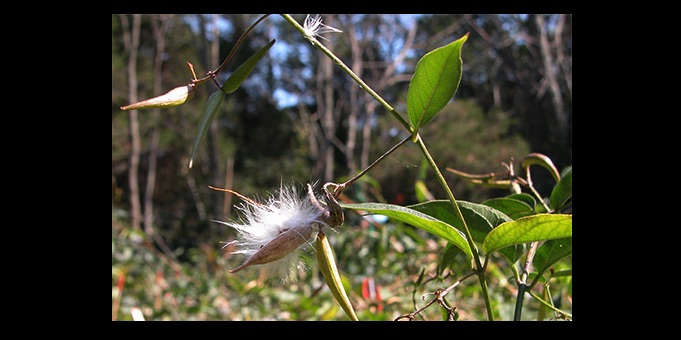Once again, black swallow-wort vines have started to grow all over Newton and are getting big enough to climb up fences and other plants. We need your help to remove them!

Black swallow-wort in May
The photo on the left shows how the plants look now in May. The photo at the end of this message shows how they will look in August.
Why do we care so much about removing these plants?
As you probably know, the population of monarch butterflies in Massachusetts has declined significantly in the past decade. They, like bees, are important pollinators in our environment. Native milkweed is the only plant that monarch larvae can eat, and loss of meadow habitat in the state has led to a loss of available milkweed to feed the caterpillars.
To make their situation worse, to the female monarch butterflies, black swallow-wort appears to be a fine plant on which to lay their eggs. It is in the same family as native milkweed. However, when the monarch larvae hatch, they do not recognize the plants as food, and they starve to death.
Please look in your yards and the edges of fields, parks and parking lots for vines with dark, glossy, opposite leaves. Then, dig up, pull up, cut down, or—later in the season–just pull off the pods – and get the plants and pods into trash bags and dispose as trash – before the plants can reproduce.
If you aren’t familiar with the plant, see the Newton Conservators flyer on the black swallow-wort.
More information is also at the Newton Conservators website.
If you want to do more to help the monarchs, plant common milkweed (Asclepias syriaca) or swamp milkweed (Asclepias incarnata) in a sunny spot in your garden. Later in the season, we will have seeds available at the Conservators’ table at the Cold Spring Park and Elm Street Farmers markets.




Recently on Twitter